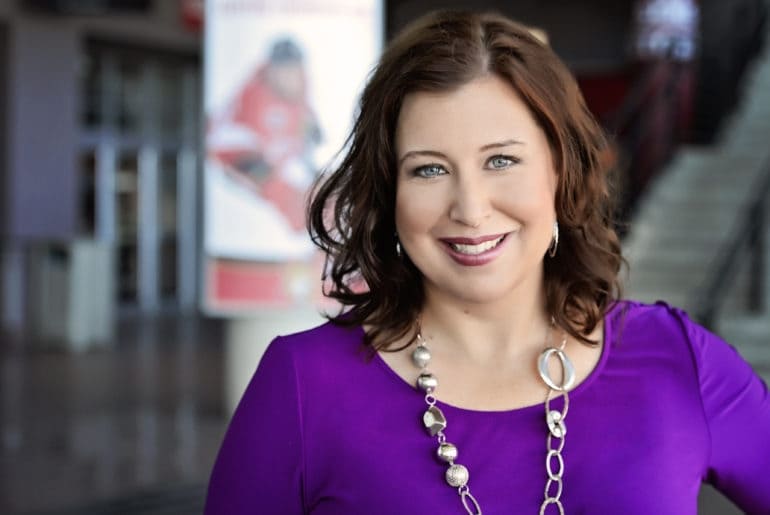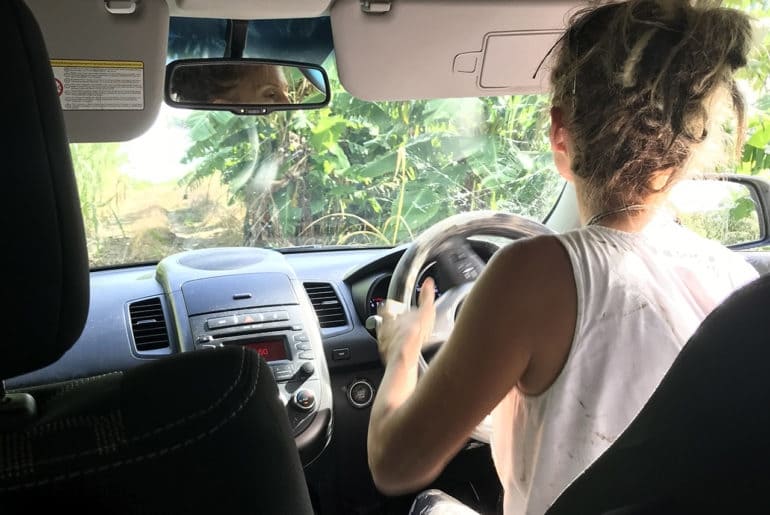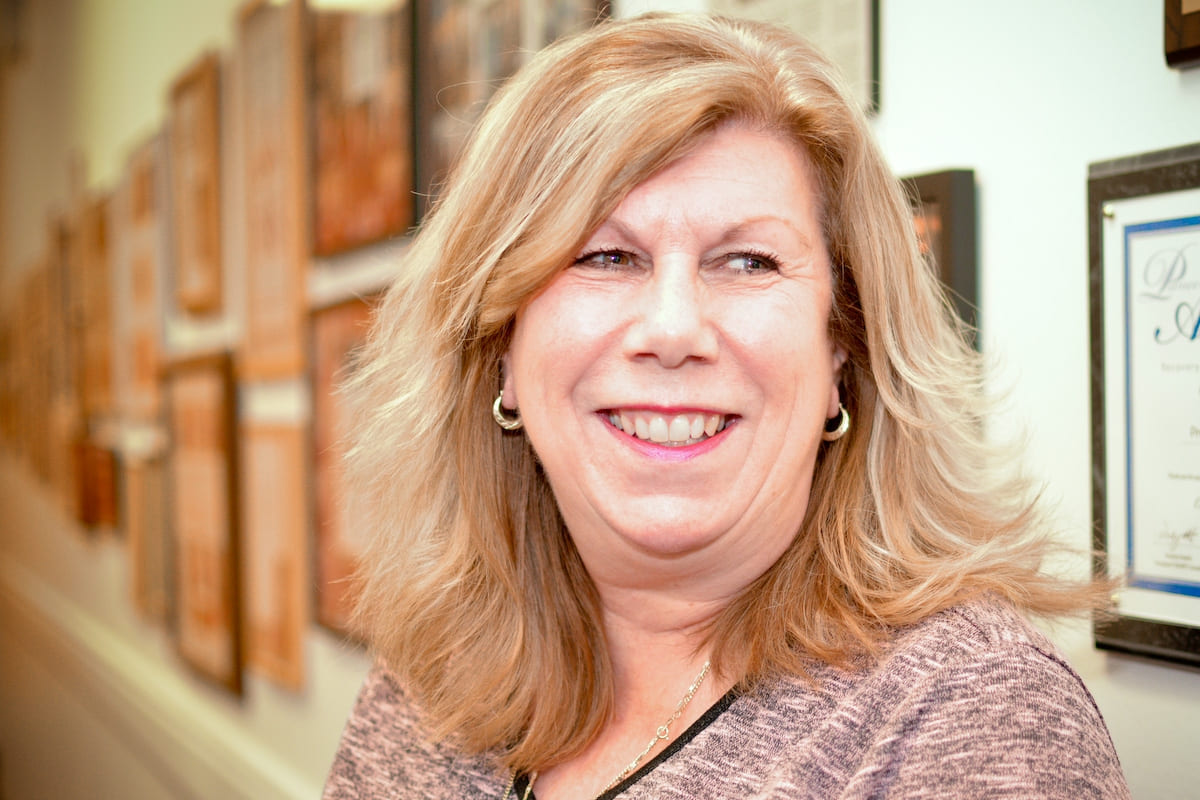
Danielle Robinson is the CEO and President of the Ottawa Senators Foundation, an organization that promotes and invests in programs that help improve physical and mental wellbeing of children. The goal is to empower kids to stay active and be engaged in the community. In 2016, 530 kids were equipped with new skates, helmets, and skating lessons on outdoor community skating rink through the foundation. It also donated about 3,000 autographed merchandise, 2,000 game tickets, and 45 hockey suites at the Canadian Tire Centre.
As CEO and president, it is Robinson’s job is to develop the strategic vision for the organization, manage administrative, financial, and communication priorities, act as community ambassador for the foundation, and report on community investment, among many responsibilities. She has a background in communications, public relations, and corporate communications.
Robinson sat down with Women’s Post to talk about her role and her experience working for the community and about learning to love the sport of hockey.
Question: You studied communications throughout your post-secondary education — what was it about this field that interested you?
Answer: For as long as I can remember I’ve been passionate about how people gather, share, and use information for intentional outcomes or results. Throughout primary and secondary school I was always involved in student council, athletics, fundraising events, and volunteering within the community. I also enjoyed relationships with a diverse cross-section of the student body and faculty. This continued into university and after an Introduction to Communications course in my first year of studies, I was enthralled by the notion that one could use communication, emotional intelligence and leadership centralized around intersecting interests, to create change for good.
What was your first job after graduation?
Communications & Development Officer, Let’s Talk Science. Let’s Talk Science is an award-winning, national, charitable organization focused on education and outreach to support youth development. The organization creates and delivers unique learning programs and services that engage children, youth and educators in science, technology, engineering and mathematics (STEM).
You made the jump from working in private financial companies to more altruistic charitable organizations – why?
I actually only spent four of the last 20 years employed in the private sector. Even then, the focus of my work was community investment and employee engagement. Like in my previous roles, my work was focused on helping people within the community live better lives by providing opportunities otherwise not available. My passion for corporate social responsibility and strategic philanthropic investment was inspired while employed with Clarica Life Insurance Company. I was introduced to the notion of business requiring a “Social License to Operate” in order to be both successful and differential from its competitors. This work very much tapped into my Communications and Sociology studies as a “Social License” is rooted in the beliefs, perceptions and opinions held by local populations and other stakeholders about the business and therefore granted by the community. Finding that intersection between business success and a community belief system is fascinating and rewarding.
What drew you to the Ottawa Senators Foundation?
While I had never played hockey growing up, sport was always part of my life and provided many opportunities for growth and social learning. When I saw the job posting for the role at the Ottawa Senators Foundation, all I could do was think about how incredible it would be to have access to an NHL brand and its unparalleled marketing resources and audiences to raise funds, and then be in a position to strategically invest them back into the region. I also thought the role would be a terrific fit with my educational and professional experiences to date.
Are you a hockey/sport fan?
I’ll never forget having to admit to the president of the Hockey Club during my interview that I’d never really watched much NHL hockey and that I wasn’t really aware of who the players were on the team. Once in the role, all that changed very quickly. The energy in the arena and entertainment on a game night is infectious. Pair that with a love of sport and the great work the hockey club, its players, alumni, corporate partners and fans are achieving, I’m proud to say I’m a fan of the game of hockey and the Ottawa Senators Hockey Club.
You have been with the Ottawa Senators Foundation since March 2006. What is it about the work that keeps you there year after year?
Each morning I wake up knowing that at least some part of my day will be spent on activities that change the lives of people within my community. It’s a pretty great feeling and keeps so many of the “distractions” in life in perspective. When I started with the Foundation, we were a team of four who finished the 2005-06 season having raised $2.5 million. Fast forward to the end of the 2016-17 season, with its terrific playoff run, we’re now a team of eight raising more than $6 million each year. The ability to grow the staff team, reconstitute the board of directors, and create a strategic mission and vision aligned to the business priorities of the hockey club have kept me fully engaged. My passion for corporate community investment and communications has enabled the Ottawa Senators Foundation to create a powerful network of partnerships that result in measurable community investments resulting in the most beautiful storytelling opportunities of lives changed.
How has the Foundation changed during that time? What would you say has been its biggest accomplishment?
As social and digital mediums have expanded throughout the past decade, so too has our ability to communicate rapidly and effectively. An NHL brand comes with an inherent level of trust and credibility. Using a brand platform like this to advocate for change, create awareness or breakdown stigma is a privilege and one I believe the Ottawa Senators Hockey Club and Foundation have accomplished on several important issues. By way of example, in November of 2010, Daron Richardson, the daughter of former NHL player and Ottawa Senators assistant coach, Luke Richardson, died by suicide. Instead of keeping these tragic details to themselves, the Richardson family worked with the Club to share their story and in Feb. 2011 the Ottawa Senators Foundation hosted its first Do It for Daron Youth Mental Health Awareness Night. The majority of in-game announcements and score clock imagery for that game was dedicated to creating a conversation around mental health promotion, education, and youth suicide prevention. Eight years later, the conversation continues to evolve into a powerful dialogue of action and now every Canadian NHL Team hosts a game night in Jan/Feb known as Hockey Talks Mental Health. This has been a pretty proud accomplishment among many.
How are you helping other women?
In recent years, I’ve made an effort to be more involved in a variety of women’s networks. I’m always happy to share my time with young women looking at careers in communications, the charitable sector, or other related fields. When approached to speak or participate in forums related to women in business I try my best to participate. I also think it’s important to be authentic in sharing both stories of success and learnings that have come from failure. Being available to female leaders within the community is also important to me. Having a network of peers to support, celebrate and champion within the community is time well spent.
What are you reading right now?
For business, I’m just about finished “The Art of Doing Good – Where Passion Meets Action” by Charles Bronfman and Jeffrey Solomon. Personally, I’m on a Fiction book break at the moment, instead opting to binge watch a variety of Netflix original series.
What’s coming up next for you career wise?
I’m approaching my mid-40’s and have been in my current role for more than a decade. Succession planning has been a priority the past 12-18 months. I believe this is a vitally important piece of leadership work within all organizations. I’m not actively looking to make a career change just yet, as I still have some personal goals within the work of the Ottawa Senators Foundation I want to accomplish, but I do know my next move will require community, communications, storytelling, and leadership be at the core of the role.


